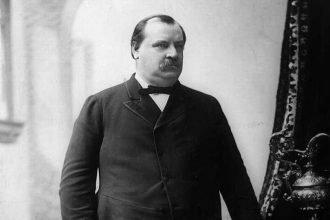Nov. 5 (UPI) — A federal magistrate judge in Virginia on Wednesday accused the Justice Department of indicting former FBI Director James Comey before investigating his alleged wrongdoing.
Eastern Virginia District U.S. Magistrate Judge William Fitzpatrick called the way in which the DOJ proceeded with the prosecution of Comey “highly unusual” while presiding over a motions hearing Wednesday at the federal courthouse in Alexandria, Va., Politico reported.
“We’re in a bit of a feeling of indict first, investigate second,” Fitzpatrick said during the hearing, as reported by ABC News.
Fitzpatrick questioned the DOJ’s handling of items seized while enforcing four search warrants in 2019 and 2020 as it investigated Comey’s and the FBI’s investigation of alleged Russian collusion in 2016.
Those search warrants targeted former Comey attorney and adviser Daniel Richman, who worked for Comey until President Donald Trump fired the former FBI director in 2017.
Because Richman also was Comey’s attorney, the former director’s legal team says some of the materials seized might be protected by attorney-client privilege and unusable as evidence.
Comey wants his legal team to review the materials and file to have any privileged information barred from the case against him.
Fitzpatrick noted that the DOJ can’t attest to its handling of the seized materials and ordered the federal agency to turn over all it over to Comey’s defense team by the end of the business day on Thursday.
Comey is accused of lying while testifying before the U.S. Senate Judiciary Committee in September 2020, to which he has pleaded not guilty.
The 2020 hearing regarded allegations of Russian collusion with President Donald Trump’s campaign ahead of the 2016 election.
Comey’s legal team filed a motion to dismiss the case and said the DOJ filed it less than a week after the statute of limitations would have prevented it from doing so.
Comey claims Trump dislikes him, which he says is the sole reason he has been charged.
He also says the prosecution violates his First Amendment, equal protection and due process rights.









